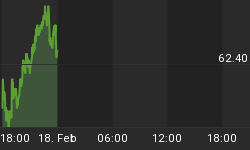Constructing a financial plan, much less having the discipline to stick to it, is no easy task. As Americans grow-up and enter the workforce, there is always a period of adjustment to the "real world," and the responsibilities that come with being mature adults.
Unfortunately, this has been no different for recent generations (late members of Generation X, Y, and even some older members of Generation Z) who have begun graduating from college or grad school and are now looking for work.
Thanks to many of the Baby Boomers, quite a few members of these generations now entering "maturity" are really anything but. Many of the Baby Busters (X), Millennials (Y), and Internet Generation (Z) might just as easily be lumped together to form The Allowance Generation.
You heard me right: We had it TOO good. Our parents made things TOO easy for us. Many of us newly-crowned "adults" have never had balance a check book or even pay our own bills. We've grown accustomed to spending whatever is handed to us, a habit that can be dangerous now that we're grown-ups.
It's about time we, as budding Americans, adjusted our thinking to become responsible members of the American machine.
At the top of the list is the realization that a weekly paycheck is NOT an allowance, so do NOT go spend it all. We have obvious expenses, which some of us have been taking care of for awhile now. We need to set aside money for outlays including:
- Rent (or a mortgage payment if you're lucky enough to have bought a house)
- Car payment
- Auto insurance
- Utilities like gas and electric
Sound simple? Hold on a second; let's not get ahead of ourselves. There are plenty of other less-obvious expenses, and we need to be prepared.
For instance, if you own a car, chances are at some point something will go wrong with it. Service and repairs cost money; might as well start putting aside money now.
Whether you rent or own, you'll want insurance - either renters' or homeowners' - so be ready.
Do you file your own taxes? If not, someone (PLEASE use a CPA) is going to want to get paid for filing your taxes for you.
All of these expenses (and more) need to be considered as we young Americans begin entering the work force and providing for ourselves. Of course, let's not forget the importance of saving, which is absolutely a must for anyone who ever wants to retire.
Many employers provide retirement benefits for their employees, most often as a 401(k). It's important to spend a little time, after being hired, to learn a little about any retirement benefits offered by your employer. If they have a 401(k) set-up for their employees, find out whether they match employee contributions. It's also good to know the limits on contributions, as well as investment options within the plan.
If you're employer doesn't have a plan, be the responsible adult and set one up for yourself. There are plenty of tools available to help people put money away for retirement, many of which will also help save money on taxes. Spend some time doing research, or find a professional to help you navigate the world of finance.
Most importantly - and this is a lesson for investors of all generations - is not to get discouraged. Understand that everything fluctuates: the stock market will go up and down; jobs will come and go; household expenses will change.
The best thing we can do is adjust. Improvise, adapt, overcome; but don't abandon your plan in frustration. Anyone who wants to see retirement will have to stay disciplined and stick with their plan. Nobody ever said growing up was easy.















